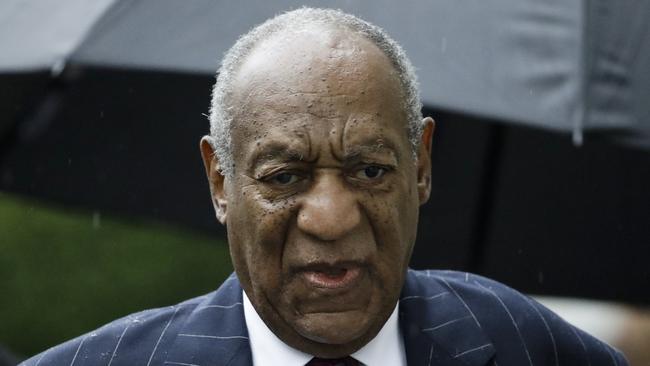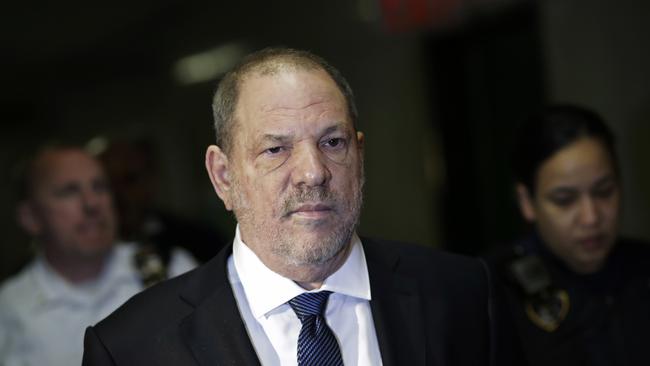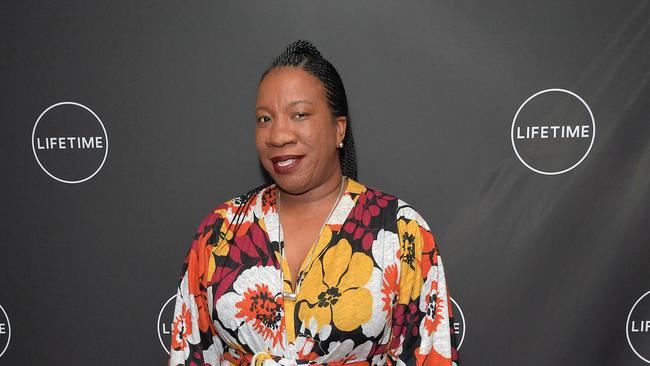The white hot rage of women in the wake of #MeToo
As more allegations of sexual harassment emerge, women around the country are recognising their own experiences being reflected back at them. And we’ve had enough, writes Victoria Hannaford.

Rendezview
Don't miss out on the headlines from Rendezview. Followed categories will be added to My News.
Listening to accounts of sexual harassment can make you feel sick.
It’s not just the detail of these allegations. It’s a sickening realisation that what you’re hearing is horrifyingly familiar.
For far too many women, there is a recognisable narrative. It might be a boss or a colleague that a slowly chips away at boundaries with a subtle kind of bullying, before more manifest sexual harassment is launched.
It’s insidious.
And this is how women who are now speaking out tell their stories, especially if it happened when they were young:
“I went along with it, because I was fearful.”
“I didn’t have the maturity or skills to tackle it on my own.”
“I didn’t know where to go to ask for help.”
“I was scared I’d lose my job.”
But as a nauseating feeling of deja vu subsides — that it could have been you saying those exact words — another takes its place.
It’s white hot rage.
Yes, the recognition might provoke stomach-churning, and then sadness, but it quickly morphs into something else. Because there is a network of survivors who are now clearly seeing the gaslighting, the bullying and the harassment for what it is. And there is no coming back from these revelations and the invisible sisterhood they’ve created. We’re bonded because we recognise these experiences and the serious impact they can have on women. And we’re angry.
RELATED: My assault shows men still haven’t got #MeToo message
It seems no coincidence many of these allegations of harassment have come from women’s experiences in the early days of their careers. I’m never one to position myself as a victim, but I am someone who can recognise the deleterious effect harassment has on people, personally and professionally.

Straight out of university, I landed a job that appeared to offer a stepping stone to the TV and film industries. It should have been an important role to my future career, but my boss was a horrific bully. He was nasty to everyone in the office, called a colleague a “blob” and regularly made impossible demands. I started getting into the office at 7am to try and acquiesce to them, but his menacing attitude literally gave me nightmares, and after five months, I quit. It wasn’t sexual harassment, it was bullying and harassment, and yet it was enough to derail that career choice. I never worked in the industry again.
A few years later, I landed a job in the UK that was the first rung on the ladder to a career I was pursuing in radio. A married colleague took to messaging me constantly, in a way that was aggressively, intensely persistent. The messages were firstly laden with innuendo, and he constantly used obscene language. When I tried to call him on the escalating sexual tone, he denied it and said it was all a “joke”. I felt like a rabbit in the headlights, so I continued to message him back.
He was senior to me.
He slowly eroded my boundaries.
I went along with it.
I didn’t know where to go to ask for help.
I feared what would happen to my job.
When I went for runs on my lunch break, he would invite himself along. It was wildly inappropriate, but I wasn’t sure how to keep him at bay. So I somehow went along with it.
It went on for months, escalated well beyond that point, and it was clearly sexual harassment. But in emails to friends at the time, my reaction to the situation details my confusion and attempts to put an end to what I described as a “nightmare scenario”.
My mention of being a rabbit in the headlights is not just a neat turn of phrase. I felt like prey.
And yet, I went along with it.

But now I know I’m not alone. I look back and think it’s a situation I would never tolerate today. Even still, I’m somewhat reluctant to air these incidents because I’ve seen the reactions. The toll for women who discuss their experiences — everything from bullying, harassment, to sexual assault — can be very high.
But as more of these allegations emerge, there have been discussions taking place up and down the country about what the #MeToo movement ultimately means, a year on from when it started. Whether its progress in Australia has been hampered by defamation laws that favour the powerful and the preservation of their reputations, and because we don’t have the right to free speech enshrined by law. Wondering if these two factors — and fear of costly legal retribution — are silencing many who have suffered harassment.
RELATED: MeToo survivors must learn best way to make cases public
The anger women feel springs from a deep well following decisions, legal or otherwise, that tell women their experiences and suffering will never be as important as the reputations of powerful, wealthy men.
That if there is a situation where people have to tell their version of events, our patriarchal culture and our legal system will err on the version put forward by the man.
But this rage that is being felt by women, in the discussions that I’ve been privy to, is not about retribution.
Instead, we want to draw a line under these experiences, and say one thing — “enough”. We can’t change the past, but we can ask that what’s to come will be different. The rage is fuel for more than just a reckoning. There is more to be done.
It’s fuel for a revolution — and the creation of a future where women no longer feel they have to “go along with it”.
Victoria Hannaford is a writer and producer for RendezView.


